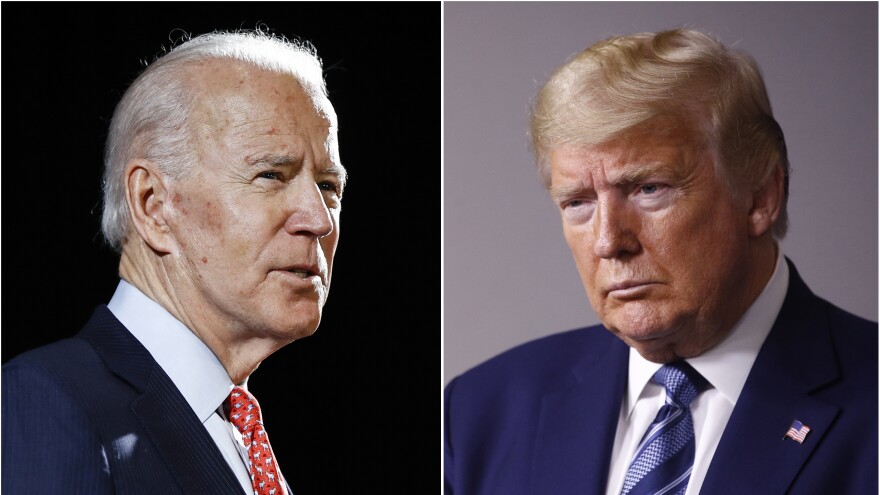Updated at 7:10 p.m. ET
The top counterintelligence official in the U.S. government warned Friday of ongoing interference and influence efforts by China, Russia and Iran.
William Evanina, who leads the National Counterintelligence and Security Center, said that the U.S. government has assessed that China prefers President Trump losing the election, because Beijing considers him "unpredictable," while Russia is working to undermine Democrat Joe Biden.
"Ahead of the 2020 U.S. elections, foreign states will continue to use covert and overt influence measures in their attempts to sway U.S. voters' preferences and perspectives, shift U.S. policies, increase discord in the United States, and undermine the American people's confidence in our democratic process," Evanina said.
In discussing tactics, Evanina noted that the countries could try to compromise election equipment either to affect results or give the illusion of tampered results, but he did not say that such activities have been observed.
China has grown more aggressive in recent months, criticizing the U.S. response to the coronavirus, although Evanina noted that Beijing continues to weigh the "risks and benefits of aggressive action" when it comes to influencing the election.
Russia, however, has been observed using a number of tactics, including spreading propaganda on social media and Russian television, to denigrate Biden, the former vice president and presumptive Democratic nominee.
Iran also seeks to spread disinformation online, with the intent to undermine U.S. institutions and Trump, and to divide the country ahead of the election, according to Evanina.
The statement did not refer to any specific cyberattack attempts on the part of any of the three countries in the style of Russia in 2016. And Evanina noted that it would be difficult, due to the disparate nature of America's election infrastructure, to affect vote tallying at scale.
Similarly, Chris Krebs, the Department of Homeland Security's top cybersecurity official, said in a speech this week that his team had seen "nothing at the directed, focused level of 2016."
The year "2020 will be the most protected and most secure election in modern history," Krebs said.
In a joint statement, Rep. Adam Schiff, D-Calif., who leads the House Intelligence Committee, and House Speaker Nancy Pelosi, said the disclosure was a good step toward more transparency, but they expressed frustration at how Evanina lumped the countries' actions together.
Instead, the lawmakers said, intelligence officials should share more specific information to "allow voters to appraise for themselves the respective threats posed by these foreign actors, and distinguish these actors' different and unequal aims, current actions, and capabilities."
"Unfortunately, today's statement still treats three actors of differing intent and capability as equal threats to our democratic elections," the lawmakers said.
In a statement, Tim Murtaugh, a spokesman for the president's reelection campaign, said: "We don't need or want foreign interference, and President Trump will beat Joe Biden fair and square."
In a separate statement, Tony Blinken, a senior adviser to the Biden campaign, said: "Joe Biden ... has led the fight against foreign interference for years, and has refused to accept any foreign materials intended to help him in this election — something that Donald Trump and his campaign have repeatedly failed to do."
Election security experts often note just how vast the threat landscape is: Interference could involve an adversary trying to manipulate vote tallies, spreading bad voting information on social media or hacking a campaign's data. And while the federal government can provide assistance and leadership, it has limited practical scope in protecting all of those areas.
Google revealed earlier this summer, for instance, that Chinese and Iranian-linked hackers were observed trying to get into the email accounts of campaign staffers for both Trump and Biden. There were no signs the attempts were successful, but it was another indication to cyber experts that the interference of 2016 was not a one-off event.
Copyright 2021 NPR. To see more, visit https://www.npr.org. 9(MDA5NTM4MTIyMDE0MTg3NDc2MTVlZjdmNQ001))






